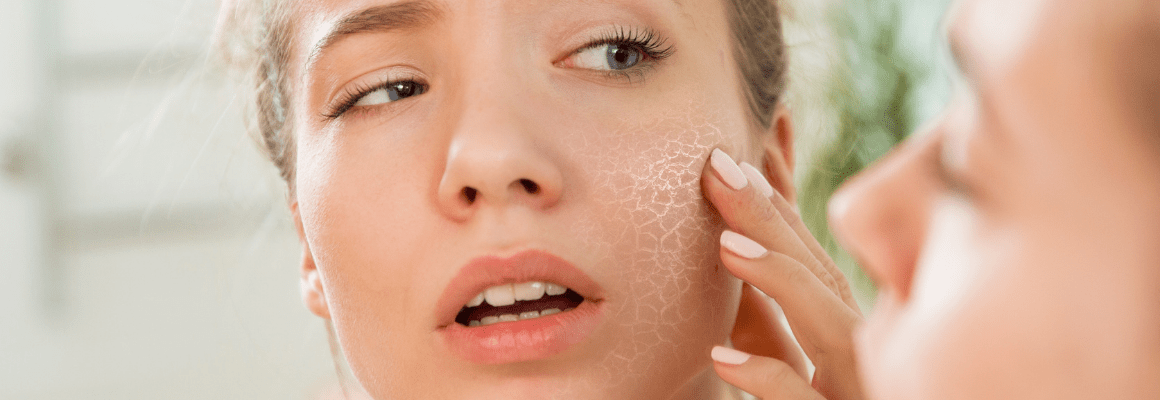Pruritus is another term for the unpleasant sensation that makes you want to scratch your skin. In other words, it’s a fancy name for itchy skin. Whether you have itchy skin all over or just in certain places, dealing with itchy skin is disruptive and uncomfortable. It can make even simple tasks like riding the bus or eating dinner difficult.
Itchy skin can affect work performance, as the need to scratch can distract adults and children at work or school. Many people also note that itchiness keeps them up at night as they toss and turn, trying to get comfortable. Sadly, itchy skin is also linked to mental health issues like anxiety and depression. As you can see, the damaging impact of chronic itchiness extends beyond physical symptoms.
Thankfully for most people, dry skin is a temporary problem that may come and go depending on certain conditions like cooler temperatures, pregnancy, and age.
In this post, we’ll describe some lifestyle changes and natural remedies that can help ease discomfort and relieve itchy skin symptoms. Read on to discover all you need to know to deal with itching skin.
Why is my Skin Itching?
If you suffer from itchy skin, the number one question you probably have is, "why is my skin itching?" While the cause of itchiness can vary from person to person, the root of the issue is typically dry skin. Some people are born with naturally dry skin, while others may experience an increase in dryness due to external factors such as cold weather, pregnancy, old age, or even health-related issues such as cancer, eczema, and psoriasis.
Let’s take a closer look at the different factors that can influence itchy skin, starting with age. Research shows that older adults are more prone to developing dry skin compared to younger people because the pores naturally produce less oil as the body ages. According to statistics, 50 percent of adults older than 40 years old suffer from dry skin. As a result, pruritus is more likely to affect older people.
In terms of health conditions, people who have diabetes, HIV/AIDS, and various types of cancer, including leukemia or lymphoma, are more at risk of developing itchy skin. The weather also plays a role as many people note that they experience itchy skin during the cold, winter months. Cooler temperatures and lower humidity levels eliminate moisture from the skin.
Itchy skin is also more likely to be experienced by pregnant women due to all the hormone changes. As the skin stretches to accommodate a growing baby, the skin loses elasticity and moisture. Although the primary location to experience itchiness is the stomach, itchy skin can affect other parts of the body, including the arms, thighs, and breasts.
A person who works at a job that requires prolonged exposure to water is also more at risk for developing dry and itchy skin because water tends to dry out the skin. People most likely to be affected include those who work in hairdressing, catering, nursing, or cooking.
Last but not least, allergies can play a role in causing itching. Unfortunately, many of the triggers that can cause itching are everyday household products that a person is likely to come into contact with daily. Examples include nickel commonly found in zippers, belt buckles, cell phones, and jewelry. Exposure to toxins or chemicals found in beauty products can also trigger a bout of itchiness. Unfortunately, many cosmetic products contain ingredients that do more harm than good to your skin. That’s why it’s so crucial to read labels carefully and make sure that what you are putting on your body for your skin to absorb is healthy and nourishing.
Eczema, Psoriasis, and Itchy Skin
Eczema is an inflammatory skin condition that affects approximately 10-20% of the population. It’s associated with a damaged skin barrier that has trouble retaining moisture. For this reason, a person with eczema suffers from chronically dry skin and accompanying itchiness. Eczema-prone skin is also more sensitive to potential irritants and allergens. According to Healthline, atopic dermatitis is the most common type of eczema, and the most burdensome symptom of AD is itchiness.
Psoriasis is another chronic skin condition accompanied by itchy skin. Those who have psoriasis have an overactive immune system that causes the body to overproduce skin cells. Instead of reproducing every three-four weeks, the skin cells produce every three-seven days and cause red patches with silvery scales to form. Although there are several forms of psoriasis, Healthline states that all types experience itching and burning sensations around the red and flaky patches.
Breaking the Itch-Scratch Cycle
Breaking the itch-scratch cycle is not easy. When you experience an itchy sensation, the automatic reaction is to scratch. You hope that scratching will bring you the relief you crave but sadly, it does the opposite. You see, scratching exacerbates the urge to itch, which sets the vicious itch-scratch cycle in motion. According to WebMD, any relief from scratching is short-lived because scratching triggers mild pain in your skin. When something hurts, the brain is temporarily distracted from the itch, which feels good at the moment. However, once the pain subsides, the itching sensation is experienced elsewhere in the body.
Coconut Oil to Ease the Itch
Coconut oil offers many health benefits to the skin. Because of this, more and more people are using this soothing remedy to treat itchiness and dryness. What makes coconut oil so effective? First of all, it is rich in lauric acid, which helps reduce the risk of infection if persistent scratching causes the skin to crack or bleed. It also has excellent hydrating qualities.
As WebMD states, coconut oil contains a fat called medium-chain triglycerides, which gives it a moisturizing effect. This ability to quickly penetrate the skin makes coconut oil so effective at combating the drying effects of eczema, psoriasis, and other skin conditions. Lastly, coconut oil has powerful anti-inflammatory properties, making it an ideal remedy for treating inflammatory conditions like eczema and psoriasis. While you can take coconut oil internally, we recommend taking a coconut oil bath in lukewarm water or applying the remedy directly to slightly damp skin.
Does Taking a Colloidal Oatmeal Bath Help?
You can also care for itchy skin by using colloidal oatmeal. Colloidal oatmeal is a special type of finely ground oatmeal that can easily dissolve in water. It can also help reduce skin inflammation and relieve itchiness because it is rich in beta-glucans. Lastly, it helps replenish lost moisture to the skin, soothes irritation, and lessens scaling and flakiness. For these reasons, many people who suffer from eczema use colloidal oatmeal to care for their dry skin and itchy skin.
Wondering how to use colloidal oatmeal? It’s pretty simple. You can create your own homemade colloidal oatmeal treatment by grinding 2-3 cups of the oatmeal using a food processor or coffee grinder. Next, fill the tub with water and pour the oatmeal inside as the water is filling. Finally, relax your body and mind as you let the soothing effects of colloidal oatmeal take care of your itching. Once finished, remember to pat your body dry with a towel to avoid aggravating dry skin with any harsh rubbing.
Natural At-Home Remedies to Treat Pruritus
In our opinion, natural remedies that you can use in the comfort of your home are the best ways to care for dry skin and alleviate itching. Here are some of our favorite home remedies that are excellent ways to target and reduce itching.
- Use a gentle moisturizer: Our Organic Manuka Skin Soothing Cream is an all-natural oil-based balm made with just six ingredients: organic olive oil, organic beeswax, filtered water, grape seed oil, organic active 16+ New Zealand manuka honey, and manuka oil extract. All of these ingredients were carefully selected by an eczema mother because of their known soothing abilities. Because it’s so nourishing, it’s safe to use on both babies and adults. Medically reviewed, it is doctor-approved and EWG Skin Deep 1 Rated. Apply it as often as necessary. We recommend at least twice a day.
- Wash with a Soothing Soap: Washing with a natural cleanser can help reduce itchy skin discomfort. We recommend this Coconut and Sunflower Oil Soap Bar. Gentle and nourishing, it combines the moisturizing qualities of coconut oil, shea butter, and sunflower oil to smooth the skin from head to toe. When washing, WebMD recommends that you take care not to exfoliate or scrub too hard as this can further irritate dry skin. Our Coconut and Sunflower Oil Soap Bar has been medically reviewed and is dermatologist approved.
- Try Wet Wrap Therapy: Wet wrap therapy is an easy home remedy that involves applying a natural cream to the skin and then covering it with a wet piece of clothing. We recommend these hypoallergenic bandages from Remedywear™. Once your natural cream is applied and a wet layer is added, place a dry layer to help the emollient better permeate the skin. Leave the wraps on overnight or for a minimum of two hours. Once removed, apply another layer of moisturizer. If you are looking for full-body coverage to treat your itching, check out our Remedywear™ shirts for adults and kids. We also offer form-fitting pants for adults and kids that truly fit like a second skin.
Read more: How to Sleep With Itchy Skin at Night










